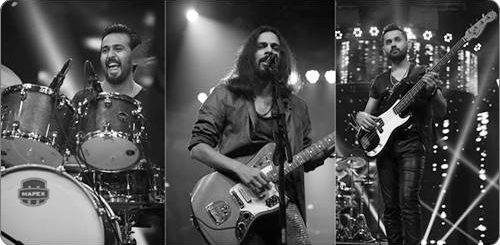An Interview With Historian Dr. Ishtiaq Ahmad
An Interview With Historian Dr. Ishtiaq Ahmad
Professor Dr. lshtiaq Ahmad is a Swedish political scientist and author of Pakistani descent. He is Professor Emeritus of Political Science at Stockholm University. He is also an honorary senior fellow of the institute of South Asian studies (ISAS) at the National University of Singapore. He was a visiting professor at the Lahore University of Management Sciences during 2013 to 2015.
Apart from these engagements Dr. Ishtiaq is an internationally acclaimed writer and his recent book “Pakistan: The Garrison State has been published in 2013 by the Oxford University Press. His other book “The Punjab Bloodied, Partitioned and Cleansed” is also one of the monumental works on the history of Punjab. He is currently a Visiting Professor at Govt. College University Lahore.
Q: You have received your education from the most prestigious institutions of Lahore. First it was St. Anthony’s. then FC College, later Punjab University and finally Stockholm University. Talking about Pakistani institutions, particularly your alma maters. how would you rate the level of excellence in these institutions? Is it the same as it was at your time or has it dropped over time? If it has dropped, what are the reasons for it?
A: Actually, it would be very presumptuous of me to give a definitive or categorical answer to this because since I left. I have no experience of what has happened, so what I know is what I have heard from people. All I know is that FC College went in to a decline after it was nationalized and it remained in a bad shape for a while. But after it was returned to the missionaries, it has recovered. Now it is a Chartered University and apparently doing quite well. On the other hand, Punjab University I’ve heard, is in a bad shape, the department of political science in particular. I am perhaps being very unfair in saying this for I have no way of knowing it for certain. I’m in no position to give you a responsible answer and this is all based on hearsay.
Q: You have also taught at LUMS. How do you compare the student of LUMS to that of GCU? Have you felt any difference between them?
A: First of all. I’m teaching a higher level at GCU and I find that the students here are very well informed which is not to say that the students at LUMS are not well informed. The only thing would be that they all come from very comfortable, elite backgrounds so I don’t know how much they read. But I know that people at GCU read a lot because when they come to class and we have discussions, I have to be alert in order to give reasonable, plausible answers. So I think the standard may even be superior but then they are people at fourth level honors, more advanced students, so then again the comparison is not a fair one. LUMS is good. The students there were good, well groomed, polite and decent people. But I would say that GCU as a whole attracts the brainiest students in Pakistan. And I didn’t say this because I am teaching here now, but because this is natural due to the fact that if the top people come here at the basis of merit, it is really understandable that it would be true of the classes.
Q: What were the intellectual influences on your early career? The era you lived in is considered to be a golden era in student politics and you have also been associated with the socialist circle. So what were the intellectual influences on your work?
A: I think I grew up as a very curious child, maybe precocious even because I used to go with my father and sit with his friends. It is unusual for a little boy to do that but I wanted to learn. So there are many ordinary people whom I consider wise. I learned a lot of wisdom from good yet ordinary people that I associated with. But then at one stage I met a gentleman Mr. Ibrahim Ali Chishti. He was a Sufi and a very learned man and he initiated me into gaining interest in Islam. That was a phase. in which for a while. I was interested in Sufism. But then he died in 1967. This Saturday. I went for a walk up to Anarkali to Paisa Akhbar where he used to live: went in and checked this place and recalled him. He was someone I looked up to because of his learning.
Let me also say that I learned a lot from my father who was active in Majlis-e-Ehrar and in the Khaksar movement which were both very militant Islamic movements. But at the same time, he had gone to FC college and he was an enlightened man so we had a liberal sort of home in which nobody imposed his/her views on anyone else. So I would give my father credit in regard to being open to my questions.’ I was always a rebel. It gets you in to trouble wherever you are. Then when I went to FC College. where there was a Christian teacher to whom I owe a debt. His name was William Fazal Massih. I had some problems with my father. He had remained kind and considerate man but he was fond of marrying so I had a problem with my step mother due to which I was thrown out of my home. So Willliam Fazal Sahib came and talked to my father.
He said. “Your child is a very bright one. Why do you mistreat him?” So then I was taken back home. My mother was living in Karachi and I used to go and meet her there. So here is a man who helped me at a part of my life when I was abandoned. Had I gone to Karachi and lived with my mother, it would have been very difficult for my mother to raise me, especially in a society like ours in which a male figure has to be were to take care of you.
William Sahab was a very kind man who went out of his way to help me and talked to my father. Then in 1968. I came to Punjab University. The student movements started breaking out again in Ayttb Khan’s time. We had teachers like Professor Khalid Mehmood who was a Marxist. I was under his spell. He was learned. In the Islamic dogma. Sufism is a way which makes it easier but even then I thought that was a bit out dated so I came under the spell of Marxism.
I became a Communist and all my life I have had a Leftist commitment. Although now having lived 42 years in Sweden. my rough edges have been very much tempered by the social democratic model. consider myself a left, social, democratic humanist now. Sufism, Bullay Shah and all the positive things about our culture fall tinder this domain. Plus the fact that ultimately it is the reason and evidence that matters. The rest is all emotion. Evidence, reason and compassion, when combined, is what takes you forward in life. So that’s how I came to the Left. If you are sorrowful and in a bad emotional state and some tells you that this pain and suffering is not given by The Divine or a product of fate but a product of people and society itself, then Marxism fits in very well. So it was very liberating for me. 0: Were you officially a member of the Communist Party of Pakistan? A: No. CPP was banned in 1954. There used to be underground CPPs of front parties so I joined the “Mazdoor Kisaan Party” of Major Ishaq. It was a Marxist party and I was its member until I left Pakistan. So formally you can say that these people influenced and impressed me in life.
At one point in life. I used to think very highly of M.A Jinnah but I think in the end he went in to a direction which defeated his own way of thinking. And you may publish these views of mine because I am well known for my radical views and different takes on subjects. I believe one must not lie. When you go in depth, you realize the positive and negative aspects. You learn through experience and one must have this capacity of saying what is right. Our people are cultural fascists, advocating that you can’t say anything against the Khalifa. Whoever is coming is basically claiming the platform of the Khalifa – total obedience – which is wrong.
Q: You belong to the golden age of student politics. How would you comment on the need for students politics in today’s era? The contradictions are piling up. students are being attacked and the state has been helpless in protecting them. So after a ban on these organizations. how would you comment on the need for social student organizations?
A: That’s a very good question. I have been thinking about it too. In Pakistan. the problem is that the institutions have not prospered. They have been interfered with so often that none of them is what an institution ideally should be or should represent. Under these circumstances student organizations and student awareness are extremely important. But I’d say something conservative here. I think if you look at Pakistan. the way student politics has impinged on the universities. it has been destructive. Jamiat started when we were there. At that time, the left and right were equal and both sides stood against each other with sticks and stones in their hands. I actually escaped being knifed, and my sitting here alive was just a chance. This was 1969. Skirmishes between Left and Right student movements sprouted so I’d rather not have student activism come into the campus because when it comes to the campus it becomes a power game. On campus there should be open debates and discussions but protests and agitation should be out of the campus. You should have the capacity to bring your students out of campus. I would say yes to student activism but not on campus. I may be considered a utilitarian and it may be considered a tactic but I think even as a principle we have not learned the art of democracy, accommodation. tolerance and listening. The sanctity of the campus should not be violated.
Q: A question about your recent antics, sir. As you said that you are a rebel, keeping that fact in mind and the fact that you had differences with LUMS, what is your take on that?
Ans: There is this proverb in urdu. “Bakray ki mu kab tak khair manaye gi?” so if you keep your opinions and comments to yourself and make sure that what you are saying is suitable to the external environment, you can survive anywhere. But I am not this sort of person. I can’t help it. I was just a child when I protested against the mistreatment of my mother and maybe I am doing the same to date. It has become a habit of mine now. I am not a religious person though I respect all religions. I am recalling a hadith of the Prophet (S.A.W) which has had an influence on me that, “if you see a misdeed or a crime being committed, do your best to stop it with your hand, if you can’t do it. raise your voice against it.” Now the latter suits me more where I raise my voice against all injustice and cruelty. My weekly columns are mostly centred on the injustices that prevail in the society, be it against minorities or women or anything which I feel is against humanity at large, I protest against it with my pen. Nowadays we have started a film series. I’m writing about “Punjab’s Contribution to Cinema” in Friday Times. There also, I am taking the same stance -how culture unites people across political and religious divides. We are writing from a point of view that liberates people. So every where I write and try to express my opinion, I try to take up causes which I think are morally demanding support. The rebel in me is always there but simultaneously, you have to be realistic and at my age you realize that the world is not resting on my shoulders and even if I move, its goings-on will remain’ uninterrupted. and that is very liberating. Even if in your own limited space and time. you can help someone. I think one must not shy away from it. That’s a good way of feeling that you have acquitted yourself well on Earth.
Q: An off-shoot of your previous answer. You said that you are a rebel and you do what you can in your space. to liberate people. In this position, it is very much probable that people will hold opinions about you and comment positively or negatively about you. So how do you react or handle the negative criticism that is directed towards you?
A: What can be done about this? You see, when you take part in a public debate, people are bound to be irritated. They will despise you, hate you and you will get hurt. But over time, getting hurt becomes a habit and then no one cares. I think that what I talk about is adequate, correct and morally justified but if people don’t share the same point of view they curse me as well even to the extent of calling me an Indian or a RAW Agent, but what can you possibly do? If I say that it is in Pakistan’s interest to have peace with India (I stand by it) and I think it would have been better had the partition with India not happened; history can’t be undone. You move on as two nations, trade with them, because culturally as well, people from these two regions are very similar.
People who question the official narrative are condemned in Pakistan and in India as well as in the case of Arundhati Roy and others like her. In Pakistan it happens to a pathological level. In LUMS as well, the maximum capacity in my classes was 50 but students used to keep coming to join my courses. I don’t know if my courses were popular because of the student’s interest in partition or the fact that I used to take them to India. I wouldn’t know. Maybe this was one of the reasons for the conspiracy against me. Now I have been called to GCU. I’m working here. I have won all the laurels in my life. Now it’s just a way of returning. Anyone invites me and takes care of me, I am willing to come.
Q: If we talk about the Pakistani society. we see that there is a patronage given to patriarchy. Female representation is not very widespread; even where there is representation. it receives resistance. What. in your point of view. are the factors behind these patriarchal thought patterns in our society?
A: Well I think they are quite well known because this is an ideological state. It is not neutral on the question of citizenship. Be it Shia or Sunni versions. dogmatic Islam is the same. I have Imaam Khumeini’s writings which state that you can marry a girl who is still sucking milk from her mother’s breast but consummation of marriage will only be at the age of nine. Now what logic is this? But the fine point he makes is that if your own present wife feeds her on her own breast then that girl becomes haraam because now she has become your daughter. This is the level of reasoning of these scholars.
Our own Mullahs issued a “fatwah” against the bill against child marriage, considering it blasphemous. These biases have been instilled in to our state and its lobby has grown stronger now overtime because of the patronage in Zia UI Haq’s time. Land owners in our society consider a woman their private property. Tribal people treat women in an even worse manner. So biases have become a part of the social fabric; patriarchy is built in into the cultural Islamist structure. Social, ideological and theological biases\vill always be a part of it. 68 years of nation and state building have to be reconsidered and we need to see what went wrong. India is also a somewhat similar society and they are changing their laws. At state level, changes are coming about but in society it is a problem because the society is still based on the 300 hundred year old traditions and orthodox. In Hinduism women were even weaker. Islam allows women to remarry but a Hindu woman is treated in an extremely inhumane oppressive manner. They are making changes in India according to the ideology of a secular state. Pakistan is an ideological state but it needs to come out of its ideological, social and theological biases, questioning things that are morally out dated.
Q: People from other provinces blame Punjabis for using all the resources of the country. Some even say that if Pakistan had to come in to being it should have been without Punjab in it or Punjab being the only state. Does the partition of India and Pakistan have a role to play in this hegemony that Punjab has over the rest of the provinces in our country?
A: These two, can be empirically linked. The reason for saying this is that when Pakistan came into being, the peaceful institutions in this state were the army and the civil bureaucracy and Punjabis dominated both these institutions. So the Pakistani state, from day one, has had a Punjabi stamp on it, right or wrong. The reason is that all the power is organized at the center. Initially the capitalist class was Punjabis. Ismailis and Memons as well but Punjabis have increased over time. Naturally the dominant group has access to more advantages and is more privileged. Punjabis are settled in Sindh as well. They have their lands there. This gives rise to arrogance in them as well. So in a way, if you are from a non Punjabi background. you might feel that Punjab has taken advantage of the creation of Pakistan. and I think the accusation is justified.
On the other hand. Punjabis are one of the strangest people on earth I’ll say, who have no pride in their past. I recited a few verses of Bulleh Shah’s poetry in LUMS one day, and my students were giggling in a state of nervousness they didn’t know how to take it. About 70% of these students were Punjabis; for them it was something exotic. This is Lahore, and if people here don’t understand Punjabi. then this is a loss. This lack, this sheer lack of intelligibility, shows it is a generation without roots. If you have no pride in your past, you stand nowhere. There’s another reason for this which I think I should point out: you see when the British came to Punjab, there was a discussion in the East India Company as to what language they should use in Northern India. where Urdu was already being used in the British army. The discussion in this board of Punjab Directors was regarding selecting Urdu or Punjabi.
The view prevailed that Urdu and Punjabi are kin languages, so why not opt for Urdu here? All the literacy is in Urdu and Punjabis have benefited most from this project of Pakistan by virtue of using Urdu in the name of Pakistaniyat. This suited the Punjabi elite very much. Why should they promote Punjabi which they think will limit their claims to the state? There is an elite preference for Urdu, although the elite mostly speak English. Urdu only serves as an ideological argument for them; otherwise. everything is carried out in English.
Q: One version of Islam is what we see and experience in Pakistan and another one is in Turkey. In Pakistan. mullahs play a vital role in building up the state narrative, whereas in Turkey mullahs even read out the ‘khutba’ given by the state, which is about civil and social issues. Both are Islamic countries, then why is there such a difference in the narratives?
A: There’s an answer behind this. After the dismemberment of the Ottoman Empire in the First World War, there was a Treaty of Severs in 1919. In this treaty, the Sultan signed away all Turkish territories. Only Istanbul, Konya, Anatolia, and a few other states were left with Turkey. Turkey became a third-rate power. Mustafa Kamal and the Nationalists fought and rejected the Treaty of Severs. In 1923, they signed another treaty which confirmed the territories Turkey has today. Therefore. Attaturk went on to have a secular state. In 1923. it was declared that Islam would not be the state religion of Turkey.
Attaturk formed the Ministry of Religious Affairs which brought religion under the jurisdiction of the state and propagated that Hanafi rituals will be used, not in legal ways but only in spiritual matters. Mosques and burial rituals are done according to Hanafi school. The fatwas that Mullahs get from the state depict a positive interpretation of Islam, and are centered only on social issues. I think it is inherent among the Muslims that they resist the progress which has taken place in the modern era. Professor Tedd’s theory very aptly describes the situation of the Muslims. It puts forward the concept that if your self-esteem decrees that you are the best, but your achievement is non-existent, the gap between your self-esteem and achievement causes frustration. and then you rebel., Muslims tend to think of themselves as the best community on earth. but unfortunately that is not the case in reality. Some are of them are of the view that the world can only be set right if Islam prevails, and this gives rise to Groups like IS Al-Qaeda etc. The long-term effect can’t be achieved but you can become a nuisance. That is what is currently hdppening.
Q: All your work is non-fiction. Do you plan on writing fiction any time soon?
A: When I became a Leftist, I read Chrishan Chander, Saadat Hassan Manto, Rajinder Singh Bedi and Sahir Ludhyanwi. Sahir especially centered to a vast range of topics and emotions and all these had a very profound influence on me. They had a main role in my affiliation with Humanism. Coming to your question, I have never written fiction but I really wish to write it. I want to make a novel out of this book of mine about the partition of Punjab. I will have to adopt the style of a fiction writer in order to write fiction, but I strongly want to write a novel on the partition on Punjab because there are so many stories in it which are stranger than fiction. They are ahead of reality. I have included these stories in my book about partition already, which are about the reunion of the families that had lost their loved ones during the catastrophic events of the partition.
Q: Your message for the students of GCU?
A: My message is the same as the Vice Chancellor’s. Avoid extremism, devote yourselves to your studies, and think and act responsibly. “Do unto others what you want others to do unto you.” It should be done as a conviction, and not merely as a tactic. Treat others with respect; I try to follow it as much as I can in my life as well. It was a pleasure talking to you – Thank you for giving me this honor.

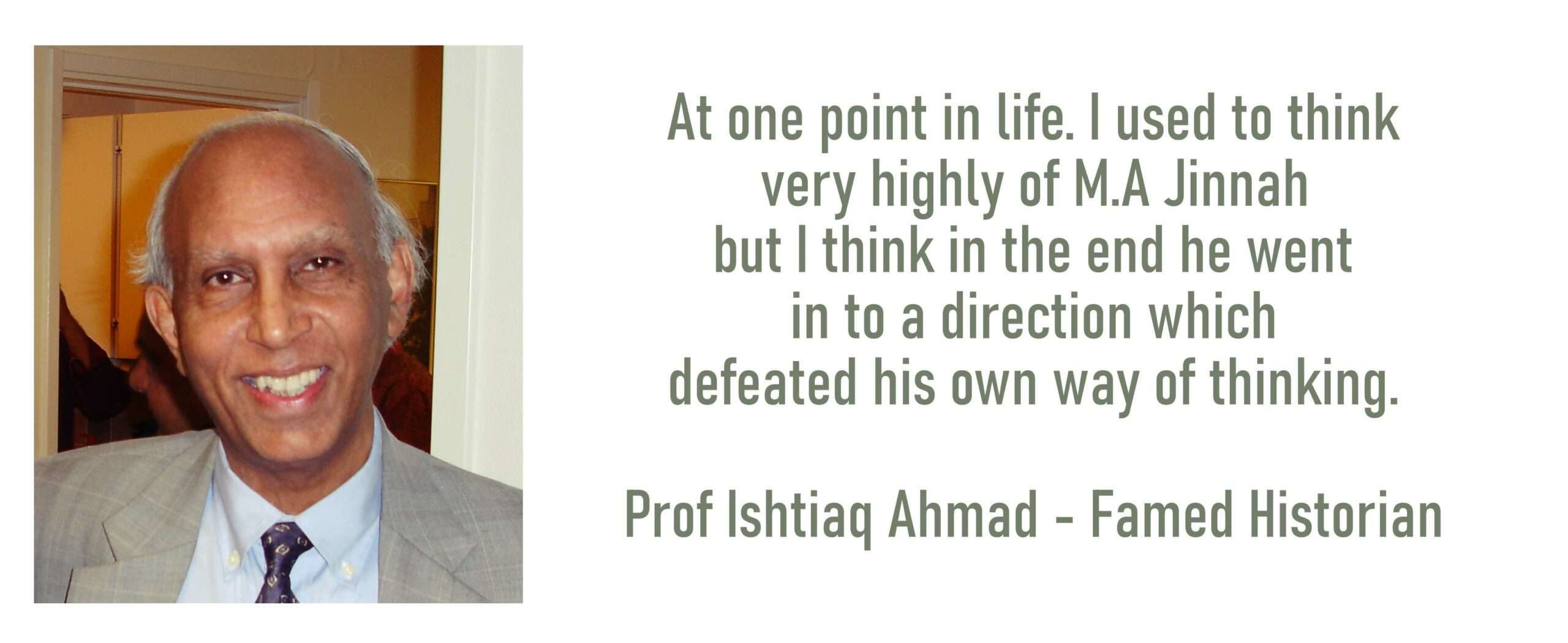

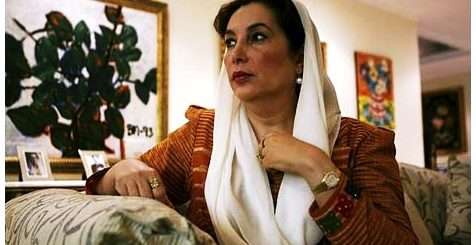



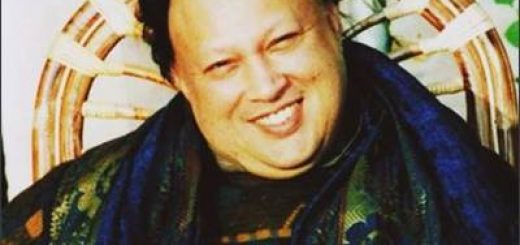

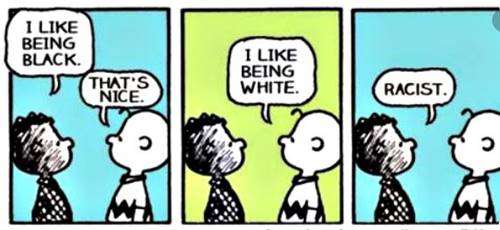



![Pakistan Writers Club [PWC]](https://www.ravimagazine.com/wp-content/uploads/2021/01/Audience-Picture-2-520x245.png)
